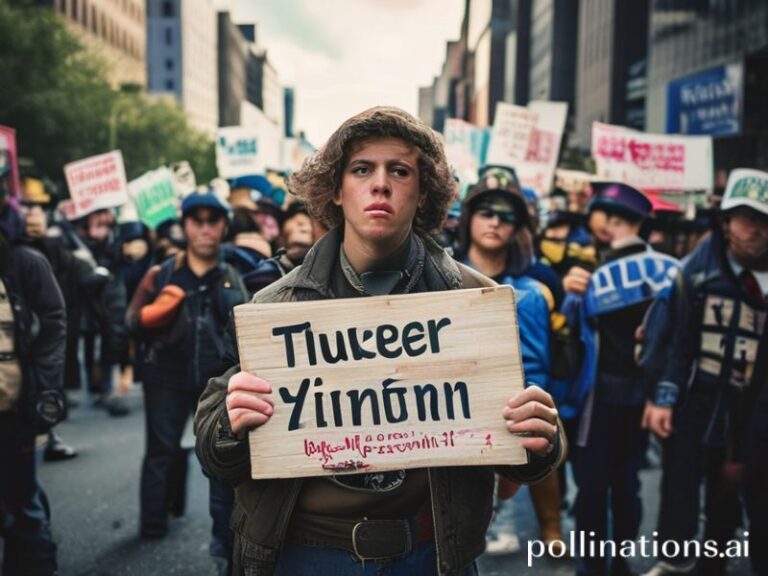Global Shawshank: How a Prison Break Film Became the World’s Most Smuggled Metaphor
Shawshank Goes Global: How a Novella, a Film, and a Whispered Hope Became the Planet’s Favorite Prison Break
By the time the Berlin Wall came down, Andy Dufresne had already tunneled out of Shawshank State Penitentiary—twice. Once through Stephen King’s 1982 novella, and again in Frank Darabont’s 1994 film, which by then had been smuggled on VHS through every customs checkpoint that still bothered to check. The cassette tapes, often mislabeled as aerobics workouts or Russian cartoons, crossed borders faster than dissidents with forged passports. In 1995, a bootleg copy screened in a freezing workers’ club in Vladivostok drew a standing ovation so long the vodka froze. In that moment, nobody cared that Rita Hayworth was misspelled on the sleeve; they recognized the larger typo: the whole damn twentieth century.
Today, Shawshank Redemption is less a film and more a universal solvent—capable of dissolving the glue that keeps national myths stuck to the wall. From Lagos taxi ranks where the DVD is sold next to plantain chips, to Netflix queues in Reykjavík at 2 a.m., audiences discover the same punchline: the state can lock you up, but it can’t lock up compound interest. Andy’s rock-hammer finance lesson—patient capital quietly chiseling away at institutional concrete—feels less like Hollywood fantasy and more like the only retirement plan left standing. Global pension funds, take note: the warden’s Bible was hollow, but your prospectus is, too.
The film’s moral algebra—innocent man in, guilty system out—travels well, probably because every country has a surplus of both. In Brazil’s Carandiru, inmates quote Red’s parole-hearing sarcasm like scripture. In Manila’s Quezon City Jail, where 3,000 men rotate sleeping shifts in space meant for 800, they screen the film on a bedsheet every June 12, Independence Day, because nothing says sovereignty like watching someone crawl through five hundred yards of sewage to freedom. The wardens don’t object; they’re too busy auctioning off conjugal-visit time slots on Facebook Marketplace.
Meanwhile, the International Monetary Fund—an outfit that knows something about long-term incarceration—has quietly adopted “Get busy living, or get busy dying” as its unofficial motto. Staffers insist it’s motivational, not nihilistic, but try telling that to Athens, circa 2010. Greece’s finance minister at the time admitted he kept a poster of Tim Robbins emerging into the rain taped inside his ministry bathroom, right above the toilet paper that was no longer guaranteed. When your national deficit exceeds Andy’s tunnel length in meters, gallows humor is the only kind left.
Even the World Health Organization, fresh from two years of pandemic press conferences that felt like parole hearings nobody passed, screened Shawshank for staff morale. They muted the suicide scene—too on the nose—but left the rooftop beer intact. Nothing says “flatten the curve” like convicts drinking suds on a sunny roof while the rest of us argued over masks in supermarket aisles. The metaphor writes itself, then rewrites the health protocols.
And yet, the film’s most subversive export may be its closing image: two men meeting on a beach that exists nowhere on the globe, because it’s stitched together from Zihuatanejo stock footage and a Pacific Northwest dream. The shot has become the world’s favorite citizenship application—filed daily on Instagram with the hashtag #ZihuatanejoChallenge, where influencers pose in ankle-deep turquoise water pretending to be ex-cons. The irony, of course, is that the real beach is probably owned by a hedge fund that bought it with laundered crypto mined in a Chinese warehouse. Freedom, like everything else, has been tokenized.
Still, the myth persists. Somewhere tonight, in a language you don’t speak, a prisoner will scratch “Brooks was here” into a wall and mean it as both epitaph and punchline. The state may confiscate the rock hammer, the rope, the poster of Raquel Welch, but it hasn’t figured out how to seize hope—mostly because hope doesn’t show up on the contraband scanner. Until it does, Shawshank remains the rare export that every customs officer waves through with a wink. After all, the tunnel always ends on the other side of the screen, and the only tariff is your willingness to crawl.







